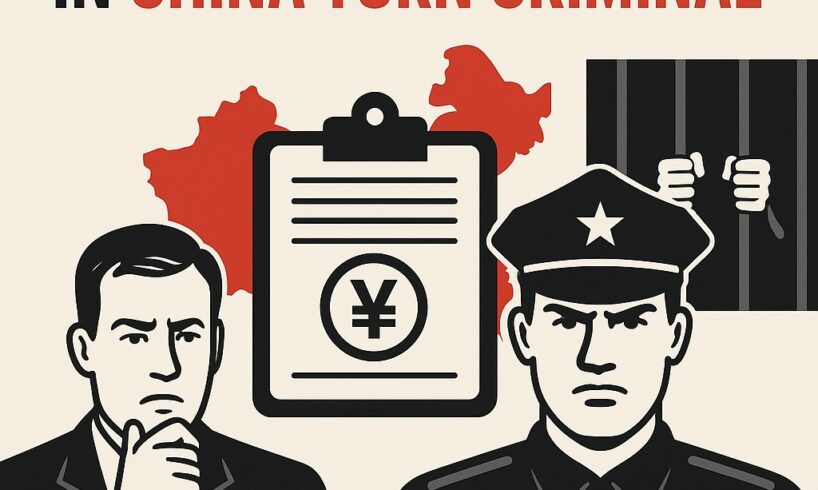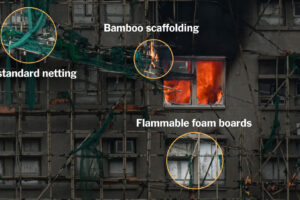
When Business Disputes in China Turn Criminal
In the United States and Europe, it is uncommon for a dispute between two businesspeople to become a matter for criminal law enforcement. In China, things work differently.
If you are doing business in China, you need to understand two things:
The scope of economic crime there is far broader than you probably expect.
The Chinese party on the other side of your deal is far more likely to pursue a criminal complaint than you would imagine.
China’s Expansive Economic Crime Laws
China has built an extensive set of laws on economic crimes that operates alongside its civil law system. The breadth is striking. The Chinese legal textbook on economic crimes that our lawyers most often consult is over 1,500 pages long and covers 105 separate crimes across eight categories.
Chinese courts now spend an increasing share of their workload on economic crimes. Many of these are “ordinary” offenses, like smuggling or passing bad checks. But others apply to areas most Western businesspeople would assume belong in private civil litigation.
Broad categories include:
These crimes are defined so broadly that commercial disputes can be reclassified as criminal matters. For example, while proving fraud in the United States is difficult, in China a business disagreement can be enough for a fraud case to proceed.
How Normal Business Disputes Become Crimes
Here are common ways that routine disputes can morph into criminal cases in China:
Sale of defective products
A foreign seller delivers goods. The Chinese buyer claims they are defective. The seller insists they meet the contract’s standards and blames the buyer’s processing. In the U.S., this would be a civil dispute. In China, it can be prosecuted as selling defective products.
Contract fraud
A Chinese company pays a deposit to a foreign service provider for a market-entry project. Later, the company claims the service was poor. The foreign provider refuses to refund the deposit. In the U.S., this would be breach of contract. In China, it can be treated as contract fraud.
Financial fraud
A Chinese company requires a promissory note from a foreign partner. When the Chinese company tries to collect on that note, banking rules prevent payment. The foreign partner does not arrange an alternative. In the U.S., this would usually be a lawsuit. In China, it can become financial fraud.
These are not rare outliers. They are examples of how ordinary commercial disagreements can quickly escalate into criminal exposure for foreign businesses in China.
Why Chinese Companies Turn to the Police
Foreign companies are often shocked by how quickly Chinese counterparts call in law enforcement. Four main reasons explain this:
Legal tradition: In China, law has historically been rooted in criminal enforcement. Judges are more comfortable imposing penalties than adjudicating private disputes.
Cultural norms: Many Chinese businesspeople see the police and prosecutors as the natural avenue for redress, rather than expensive civil lawsuits.
Economic incentive: If the state prosecutes, the Chinese party doesn’t need to pay their own lawyers.
Leverage: Criminal proceedings give the state powerful tools — detention, police investigations, and exit bans — that can pressure foreign executives into paying quickly.
It is also not uncommon and not illegal under Chinese law for companies to share recoveries with police, giving both the complainant and the authorities a financial incentive to pursue criminal charges in situations that would be civil matters elsewhere.
Practical Steps to Protect Your Company and Yourself
Use contracts tailored for China: Avoid vague language that can be twisted into allegations of fraud.
Plan dispute resolution outside China: Where possible, include arbitration clauses in a neutral venue such as Hong Kong or Singapore. For why this is often difficult, see Drafting China Contracts That Work and A Guide to Dispute Resolution Clauses in International Contracts.
Stay vigilant: Do not assume Chinese courts will treat disputes the same way U.S. or European courts do.
Take threats seriously: Criminal complaints are not a bluff in China — they can and do lead to detentions and exit bans. This is not theoretical. We have seen foreign executives detained or prevented from leaving China over disputes that would have been civil matters elsewhere. Doing business in China requires more than contracts and compliance — it requires recognizing the very real criminal risks.
For more on these risks, see:
The Bottom Line
If you are involved in a business dispute in China, you must immediately assess whether it could be reframed as a criminal case. If the other side threatens to bring the police or prosecutors into the matter, treat that threat as real.
Be certain that what you view as an ordinary commercial disagreement is not defined under Chinese law as a potential crime. Above all:
If you think you might face criminal allegations in China, do not travel there.
If you are already in China, leave as soon as you can.
FAQs on Criminal Risks in China Business Disputes
What is an exit ban in China?
An exit ban stops a foreigner from leaving China if they are tied to a dispute or investigation. It can be imposed without warning and last months or even years.
How easy is it for a business dispute to become a criminal case?
Much easier than in the West. Broad categories like “contract fraud” or “damaging market order” can turn a routine commercial disagreement into a criminal case.
What counts as fraud under Chinese law?
Fraud is defined broadly. Failing to deliver goods as promised, shipping defective products, or refusing to refund a deposit can all be treated as fraud — even without intent to deceive.
How common are foreign executives detained in China?
More common than many realize. Exit bans and detentions are regularly used in unresolved disputes, sometimes over modest sums.
What should foreign companies do if they’re already in a dispute?
Move with extreme urgency. Immediately hire China-specific legal counsel, not just your regular corporate lawyers. Assume the dispute could escalate into a criminal matter, and if executives are in China, they should leave as soon as possible. Explore a swift settlement, even if you believe you are in the right, to prevent criminal charges or exit bans.
How long do criminal investigations take in China?
Anywhere from months to years. Exit bans can last the entire time. The uncertainty itself is used as leverage.
Can hiring a Chinese lawyer prevent criminalization?
Sometimes, but only if done early. Skilled local counsel can help keep a matter civil or negotiate before charges are filed. Once it’s criminal, their influence is limited.
What role do Chinese officials play in disputes?
Police, prosecutors, and local officials often pressure parties to settle quickly. That can help if you’re the complainant but adds serious pressure if you’re the defendant.





